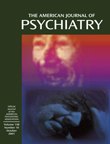This book? Grab it! It is an indispensable addition to any mental health professional’s library. Although called a textbook, it could as well be termed an encyclopedia (except Evans and Farberow already claimed that title
[1]). It is a compendium of knowledge regarding suicide and is the best work of its nature I have read. In addition to its remarkable breadth, it has numerous other strengths: the authors are all unquestioned authorities, and the book is more authored than edited. This allows for more consistency of style than the typical edited book (while cutting down on repetitions). Although a number of chapters are “contributed,” the primary authors were judicious in their selections so that these chapters are as strong as their own. I particularly liked the authors’ frequent use of boxed clinical examples to illustrate issues and dilemmas. Each chapter concludes with a brief annotated bibliography of suggested readings, and the references grouped at the end of the book are quite extensive.
Maris, a sociologist, directs the Center for the Study of Suicide at the University of South Carolina. For many years the editor of Suicide and Life-Threatening Behavior, Maris has also been President of the American Association of Suicidology. He is known for setting a high scientific standard, and his large bibliography attests to his wide-ranging interests in suicidology. His editing skills are particularly apparent in the present work. Berman is the Executive Director of the American Association of Suicidology and was a professor of psychology at American University. Like Maris, he is a prolific author on the topic of suicide. Silverman is the current Editor-in-Chief of Suicide and Life-Threatening Behavior and is an associate professor of psychiatry at the Pritzker School of Medicine. He recently chaired the national advisory committee on suicide prevention, which made recommendations to the Surgeon General, Dr. David Satcher, regarding a national suicide prevention strategy.
The book is divided into five sections. The first is an introduction comprising four chapters presenting a general review/overview of suicidology and reviews of theories, methods, and the history of suicide. The second section is focused on epidemiology and includes a contribution by Steven Stack with an employment/economic focus and another by Bruce Bongar et al. addressing family and interpersonal issues. The third section considers psychiatric, medical, and biological factors in suicide and includes Brian Tanney, Mark Goldblatt, David Lester, and Robert Plutchik as contributing authors. Part four addresses additional suicide-related issues such as indirect self-destructive behavior (a chapter written by the authors and N. Farberow); ethical, religious and philosophical issues, assisted suicide, malpractice, and institutional liability matters. The final section has chapters on treatment and prevention strategies and on survivors of suicide.
There are so many excellent chapters that it is difficult, perhaps arbitrary, to single out especially good ones. Since I do a fair amount of suicide forensic work, I found chapter 20 to be a most interesting and superlative overview on suicide and the law. Similarly, I think the seventh chapter, “Racial, Ethnic, and Cultural Aspects of Suicide,” is unusually strong and important.
Is there nothing to be critical of in this major work? Sure, but my criticisms reflect more my personal biases and perspectives than substantive scientific issues or disagreements. For instance, although part 3 is entirely about medical and psychiatric issues, and chapter 16 is devoted exclusively to the biology of suicide and is quite good, it read a bit like “faint praise” to me. I was somewhat disappointed in its lack of a sense of excitement about where we are poised in regard to new findings on the genetic bases for depression and suicide and our current and imminent abilities to treat them pharmacologically. I am more sanguine than the authors in this section appear to be regarding the enormous potential of psychiatry to have a substantial public health impact on both depression and suicide. Its very succinctness suggested undervaluation. To be fair to the editors, however, their rigorously scientific stance mandated even-handedness, and their insistence that theory does not equal fact mandated their skepticism.
I was also less enthralled by parts of chapter 9, “Marriage, Family, Family Therapy, and Suicide,” which provides, for instance, a list of the requisite characteristics of family therapists that amounts to a citation of platitudes. I was also disappointed to read once again of Vince Foster’s suicide (chapter 11) with a lack of emphasis on depression as the ultimate culprit—and this in a sophisticated textbook on suicide!
However, this is a huge book in scope and to hunt for further nits is nuts. It is a marvelous work, a tour de force on suicide, and a text or reference work to be cherished. The authors indicate their wish for feedback from their readers and their intent to frequently update the book; they should be applauded for both.

